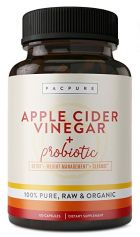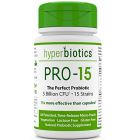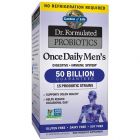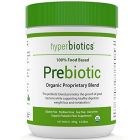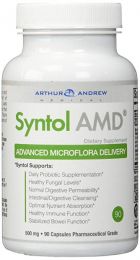Many factors come into play in obesity. As it turns out, your gut microbiome has an influence on your weight. Let’s take a look at how probiotics and prebiotics can promote weight loss.

Relationship between bacteria and body weight
Over 100 trillion bacterial organisms live in your intestinal tract. These are comprised of many different species which help you digest food into forms that your bloodstream can absorb. Very recently, the importance of your gut microbiome (the varieties and numbers of bacteria in your intestine) in many areas of health has gained appreciation. Though it is not fully understood, changes to this microbiome have been associated with weight loss, weight gain, obesity, and metabolic syndrome.1 Current science suggests that your gut bacteria help regulate nutrient intake, fat absorption, and energy storage, and can even influence inflammation in your intestines.1

Rodent research
Most research conducted on the effects of probiotics and the gut microbiome on body weight and composition have used mouse or rat models. Changes in weight are more quickly observable in rodents, and it is easier to sample their fecal matter for alterations to the bacterial organisms. In these studies, oral ingestion of several strains of bacteria have been found to reduce the weight of obese mice and rats fed a high-fat diet. These strains include Lactobacillus gasseri, L. rhamnosus, L. sakei, L. casei

Probiotics in humans
Research on probiotics in humans specifically for weight loss is currently limited, but increasing interest in the gut microbiome’s role in obesity has led to some clinical trials starting recently. Initial results have shown that probiotic supplementation can help you reduce overall weight, adipose mass, and BMI.1,3 Another benefit of probiotics is that they can help shrink your waistline and your hip circumference.1 A higher dose of at least 30 billion CFUs (colony forming units) per day will have a greater influence on your body composition than lower doses.3 Interestingly, supplementing with just a single strain of bacteria, typically in the Lactobacillusgenus, tends to support greater weight loss than supplements with multiple strains.2,3

Prebiotics: feeding your gut flora
Your gut bacteria need a healthy diet too. Consuming foods that provide nutrition for beneficial bacteria in your intestines promotes a healthier balance of bacterial species in your gut. Prebiotics are supplements that provide specific types of fibers that support your gut microbiome. These are typically indigestible, highly fermentable carbohydrates such as oligofructose, galactooligosaccharides, inulin, acacia gum, or lactulose that are derived from fibrous plant sources.4 Supplementing with prebiotics can increase the numbers of beneficial Lactobacillus and Bifidobacteria species in your gut, and recent evidence shows that prebiotics can even help you lose weight.3,4 Garlic, leeks, bananas, beans, chicory root, asparagus, and yacón syrup are excellent dietary sources of natural prebiotics.5 Try getting a dose of 8-16 grams of prebiotic fibers per day for optimal results.6

Prebiotic/probiotic combos
Supplements which combine prebiotics and probiotics into a single format can be a good option for optimizing your gut microbiome for supporting weight loss. You can buy these in capsule form or as chewable gummies and drink mixes. Here are a few of the top customer-rated prebiotic/probiotic combos on the market:
- BioSchwartz Advanced Strength Probiotic
- Arthur Andrew Medical Syntol AMD
- AMRAP Nutrition Probiotics
- Solgar Probi 30 Billion
- Vibrant Health Vibrant Flora
[1] He M, Shi B. Gut microbiota as a potential target of metabolic syndrome: the role of probiotics and prebiotics. Cell & bioscience. 2017;7:54.
[2] Karimi G, Jamaluddin R, Mohtarrudin N, Ahmad Z, Khazaai H, Parvaneh M. Single-species versus dual-species probiotic supplementation as an emerging therapeutic strategy for obesity. Nutrition, metabolism, and cardiovascular diseases : NMCD. 2017;27(10):910-918.
[3] John GK, Wang L, Nanavati J, Twose C, Singh R, Mullin G. Dietary Alteration of the Gut Microbiome and Its Impact on Weight and Fat Mass: A Systematic Review and Meta-Analysis. Genes. 2018;9(3).
[4] Simpson HL, Campbell BJ. Review article: dietary fibre-microbiota interactions. Alimentary pharmacology & therapeutics. 2015;42(2):158-179.
[5] Genta S, Cabrera W, Habib N, et al. Yacon syrup: beneficial effects on obesity and insulin resistance in humans. Clinical nutrition (Edinburgh, Scotland). 2009;28(2):182-187.
[6] Delzenne NM, Neyrinck AM, Cani PD. Modulation of the gut microbiota by nutrients with prebiotic properties: consequences for host health in the context of obesity and metabolic syndrome. Microbial cell factories. 2011;10 Suppl 1:S10.
Search the blog
Article Categories
- All Articles (95)
- Rating Charts (1)
- Beauty & Skincare (17)
- FAQ (0)
- Hair Care (9)
- Health & Wellness (12)
- Anti-Aging (4)
- Kid's Health (0)
- Makeup (2)
- Men's Health (2)
- Oral Care (3)
- Sunscreen (7)
- Skin Tools & Treatments (10)
- Supplements (26)
- Videos (0)


